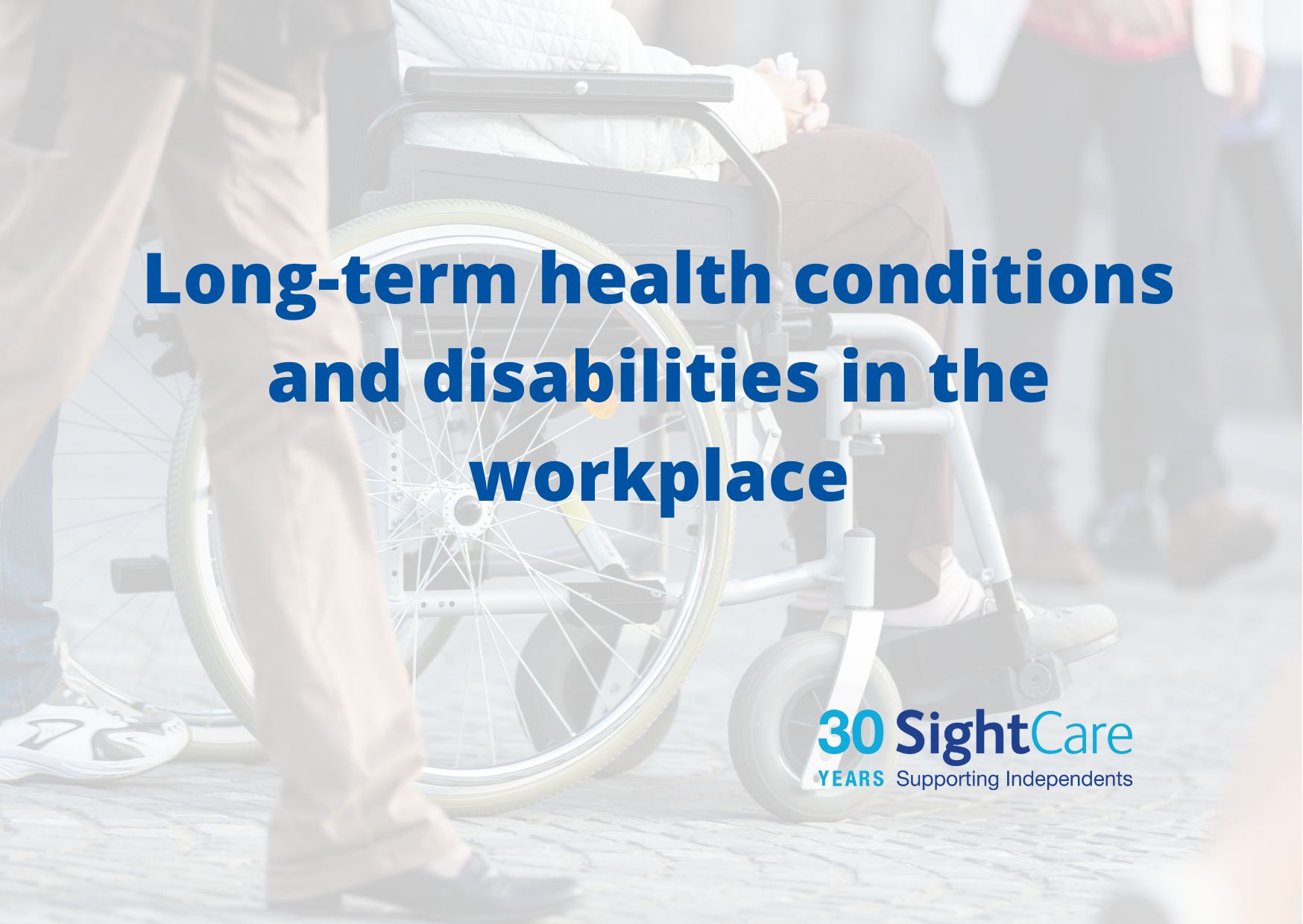Managing Disabilities in the workplace
Here we look at how to manage long-term health conditions and disabilities in your practice.
Many people are out of their jobs due to medical conditions. It’s important to be able to recognise guidance and also follow your employer obligations for those who have long-term health conditions and/or disabilities.
Here we have compiled some information that can help to broaden your understanding of how to support people with long-term conditions and disabilities in the workplace.
Disabilities in the workplace
The Equality Act regards disability is a protected characteristic. Equality law says that:
“A person has a disability if she or he has a physical or mental impairment which has a substantial and long-term adverse effect on that person’s ability to carry out normal day-to-day activities.”
You can learn about the Equality Act guidance, which includes advice on how you can avoid all the different types of unlawful discrimination.Being able to make amendments to how your practice works to allow people to remain in work not only makes for a more inclusive workplace, but it can also heighten morale and make people feel heard. It is estimated that nearly 150 million working days were lost because of sickness or injury in the UK in 2021, which is the equivalent to 4.6 days per person working. The Federation of Small Businesses found 51% of small businesses have employed a disabled person or someone with a health condition in the last three years, but disabled people are less likely to be employed than non-disabled people and are twice as likely to fall out of work compared to those without disabilities or long-term health conditions.
Risk assessments
Risk assessments help you to manage risks caused through work activity – this risk assessment should be reviewed regularly. There is no legal requirement to carry out a separate risk assessment specific to a disabled person but you should review your current risk assessment to ensure that it covers risks that could affect them. You can learn more about risk assessments on the HSE website.
Workplace adjustments
When it comes to workplace adjustments, you only have to make adjustments where you are aware (or reasonably should be aware) that a worker has a disability. You are not required to do more than what is reasonable for you to do, which will depend on the size and nature of your organisation. However, if you do not make or identify reasonable adjustments, and a disabled worker can show that there were barriers you didn’t assist with, they can bring a claim against you in the Employment Tribunal. You may then be ordered to pay the worker compensation as well as make the reasonable adjustments. You can learn more about this on the Equality Human Rights website.
Here are some of the ways that you can make adjustments in the workplace.
Understanding what condition or disability a person has is always key to being able to provide appropriate support. You can look up specific conditions on the NHS website.
The government website has a portal where you can answer questions about a specific employee to see what support recommendations or obligations your practice should fulfil. This webpage is also available in Welsh. This survey will cover topics such as how to manage absences, how to have conversations about health and disability and discussing changes that can be made which will allow people to stay at work.
Paying for reasonable adjustments
Reasonable adjustments must be paid for by you as an employer, but Access to Work may be able to assist with costs that it would not be reasonable for an employer to pay. The Access to Work webpage is here.
Equality law
It’s important to be aware of Equality Law. This includes:
- a disability must not be a reason not to promote a worker if they are the best person for the job
- a disability must not be a reason to dismiss a worker
You can also learn how to about how to prevent discrimination in the employment process here.
If you have queries related to law and long-term health or disabilities, our HR partner Citation can help – fill out the enquiry form here.
Disability Confident Employer scheme
The government have a scheme which supports employers with employing or supporting disabled workers. Guidance about signing up for the Disability Confident scheme, and how it can help your business on the government website.
Health Adjustment Passport
Your employees may have a health adjustment passport, which supports employees with identifying what support and changes they may need when you are in work or moving into work.
Personal Emergency Evacuation Plans
It’s important to ensure that your PEEP plans covers a means to escape from a fire for a disabled person too.
Talking toolkit
HSE have produced a Talking Toolkit which you can view here.

